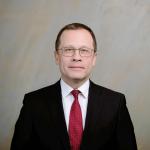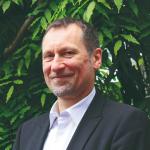Amsterdam bans creation of new hotels
Another piece in the overall strategy to reduce tourist flows to the city
 TheMayor.EU logo
TheMayor.EU logo 
AfD's Robert Sesselberg (on the left) will lead the district of Sonneberg (Thuringia), Source: AFD Gebietsverband Sonneberg
Alternative for Germany’s candidate came out on top in Sonneberg, and he will administrate without any need for coalition support
After the heady weekend that we witnessed in Russia, the German political landscape also offered an earthquake of sorts, albeit on a smaller scale, after the far-right AfD party won the election for a district administrator in Sonneberg.
This means that for the first time since the end of World War II and the demise of the Nazi party, a far-right politician will govern a territorial unit in Germany. Alternative for Germany (AfD) has formed part of governing coalitions before, but it has never controlled an administration unit on its own.
The man who will lead the Landkreis (the equivalent of a county or district) of Sonneberg, in the central state of Thuringia, is Robert Sesselman, a lawyer and regional lawmaker. He took 52.8% of the votes, despite appeals by the other parties to support his opponent – one Joergen Koepper from the conservative CDU.
With only around 57,000 people, Sonneberg is one of Germany's smaller districts, but the landmark victory makes it the first to be run by the Alternative for Germany (AfD) party. However, the result is historical and noteworthy due to its unprecedented nature, especially in a country which has been reeling for so long from the troublesome and traumatic legacy of the Nazi party rule in the 1930s and 1940s.
Far-right politics were taboo for the longest time in both parts of divided Germany during the Cold War, where de-Nazification became a policy for all successive governments. However, with the reunification and the resulting economic disparity between the West and the East of the country and the rise of populism and the liberation of all political narratives with the advent of social media, neo-Nazism and far-right parties have crept back on the scene, even in Germany.
This year marks a decade since the creation of AfD, which started as a Eurosceptic platform but then managed to gain popularity in the wake of the migrant crisis of 2015 and harness sentiments that laid dormant but unrepresented for a long time in the local political market.
The AfD is polling quite well in the former communist East German states of Thuringia, Brandenburg and Saxony, which will see regional elections next year where the party is hoping to score major breakthroughs.

Silesian is spoken by about half a million people in the south of the country

Legislators and magnates have to await a preliminary ruling from the European Court of Justice

The building will then serve as the site for a new museum dedicated to Finnish-Russian relations

The tool helps identify undeclared swimming pools and garden sheds

It will serve as a virtual companion to the municipal network of libraries in the country

In addition, the federal government has launched the National Week of Action against Bicycle Theft to raise awareness of the issue and the new solution

The tests are also experimenting with a charging point that is easier to maintain

Reportedly, the aim of the local government is to curb violence and disorder among the youth

The city thinks that it’s time to update pet-related street cleanliness rules for the 21st century

Yes, you guessed it right, that also includes baguettes and cheeses

Reportedly, the aim of the local government is to curb violence and disorder among the youth

Silesian is spoken by about half a million people in the south of the country

Urban dwellers across the EU are having a say in making their surroundings friendlier to people and the environment.

Forests in the EU can help green the European construction industry and bolster a continent-wide push for architectural improvements.

Apply by 10 November and do your part for the transformation of European public spaces

Catch up with some recommendations for the 2024 European Capital of Culture programme from the mayor of Tartu

An interview with the ICLEI regional director for Europe аfter the close of COP28

An interview with a member of the No Hate Speech Network team














